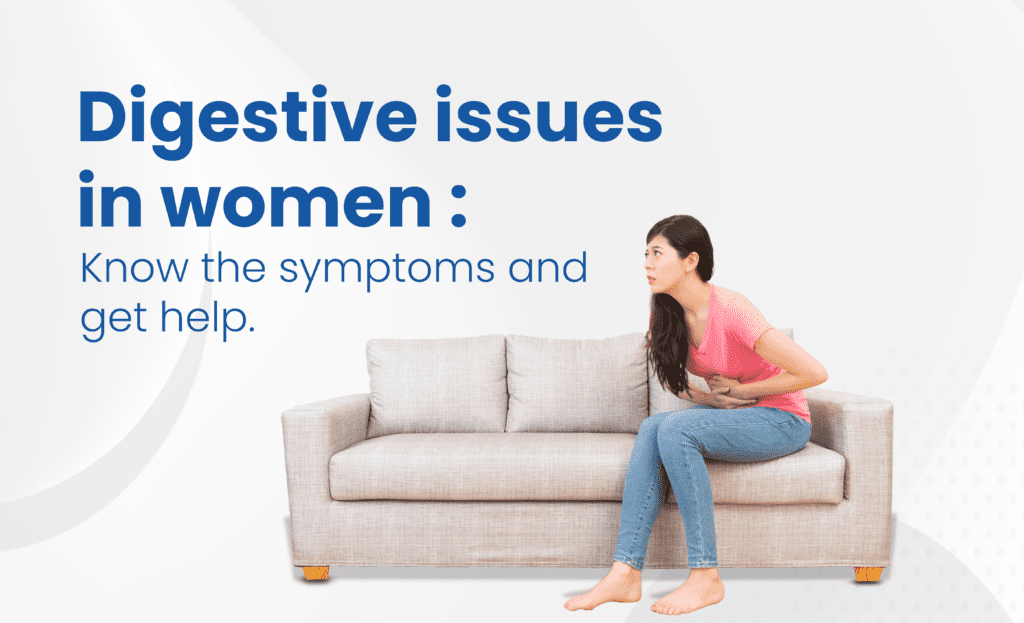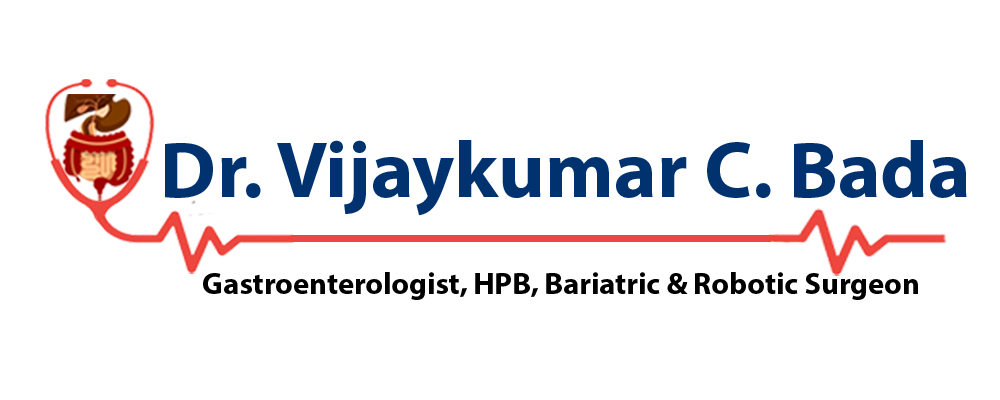Digestive issues in women:
Know the symptoms and get help.

Women, naturally, are sensitive eaters. This can be due to the stereotypical notion regarding a women’s diet, but it’s not all. Selective eating for women is associated with the functioning of female physiology.
This is because the female system is more prone to developing specific digestive issues such as irritable bowel syndrome, constipation, and gallstones – to name a few – than men.
Yet, how often do you hear women talking about this? Not much, as like most digestive issues that are faced by the general population, women’s gastric health is shrouded by embarrassment and discomfort.
But this has to change, so here is your basic peek into women’s digestive health.
What causes Gastrointestinal issues in women?
One of the leading causes is the variation in the hormonal level in women during their menstrual cycles and pregnancies, which can have an additive effect on the GI tract.
Also, since the female anatomy in the abdominal section is tightly packed with the uterus, ovaries, colon, and small intestine, during the menstrual cycles – the prostaglandins released (contraction of uterine muscles) can result in similar contractions in the nearby organs resulting in diarrhea. Meanwhile, progesterone release may cause bloating and constipation.
What are the common GI issues in females?
Some of the most prevalent Gastric disorders in women are:
Irritable Bowel Syndrome: It affects the small intestine and results in pain and diarrhea. It is usually connected to hormone fluctuation during the menstrual cycle and increases in severity close to the onset of menstruation.
Constipation: It is when the feces harden and become difficult to pass, primarily due to the hormonal variation’s relation to the menstrual cycle.
Gallstones: Here, the cholesterol hardens and forms deposits in the gallbladder. The female hormones naturally cause an elevation in the levels of cholesterol in the bile, slow its movement in the gallbladder, and leave behind crystallized deposits.
Celiac Disease: It is an autoimmune disease found more commonly in women than men, where gluten can damage the small intestine.
Gastroparesis: The inability of food to move quickly from the stomach to the intestines, thus causing heartburn, indigestion, bloating, nausea, and vomiting
How to Avoid Digestive Problems, Find out what's causing them!
- Foods rich in acids could be citric fruits, such as lemon, orange, tomatoes, and grapes. They may irritate the stomach lining.
- Spicy and fried foods can result in heartburn, indigestion, acidity, and even acid reflux.
- Dairy and gluten-rich foods may also irritate the stomach and result in improper digestion.
- Alcohol is digested in your body differently than other foods, and so too much alcohol consumption can damage your stomach lining, making it weak and prone to developing ulcers.
- Other than these, your body may have specific food reactions to certain foods. If you identify foods that trigger your diarrhea or constipation – try to avoid or replace them in your diet.
When should you consult a physician for Digestive Problems?
Most women tend to leave their digestive issues undiagnosed. They usually take up temporary remedies to deal with the problem without actually dealing with the underlying cause. This can grow into potentially harmful disorders if not identified earlier.
Therefore, being aware of your health condition is extremely important, and following it up with a medical checkup can help alleviate further distress caused by the same. Here are a few signs to look out for:
- Unusual and severe stomach pain
- Heartburn and acid reflux
- Difficulty in swallowing
- Persistent nausea
- Chronic diarrhea or constipation
- Abdominal bloating and flatulence
- Loss of appetite and unintentional weight loss
- Any condition makes it difficult for you to carry out your daily activities.
Lifestyle changes and dietary changes can help in bringing these conditions under control. Regular checkups and proper follow up can prevent the development of disorders that may be potentially dangerous for you. If you face any form of discomfort, then consult your doctor at the earliest—the earlier the diagnosis, the better the recovery from the condition. Reach out to Dr. Vijay for further queries if you are experiencing any symptoms mentioned above.
Also Read: What are the possible cures for Hepatitis B?
Have Any Question?
Are you looking for a Solution for your problem? You can call us or just drop your question here.
Stay Connected with
Dr. Vijaykumar C. Bada

Dr. Vijaykumar C. Bada is the best Gastroenterologist in Hyderabad city of Telangana.
- Flexible Appointments & Urgent Care
Dr. Vijaykumar C. Gastroenterologist
Design & Developed by Pointofviewer
Copyright © 2021. All rights reserved.
